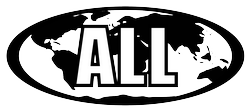- NEW ITEMS (39)
- ALL TITLES (4711)
-
DOCUMENTARIES AND NEWSREELS
(417)
- Eastern European History and Culture
- Germany
- Postwar Germany and Europe
- The Middle East
- The Spanish Civil War
- Western European History and Culture
- WWI Documentaries
- WWII Documentaries
- German Wartime Newsreels
- Military History other than World Wars
- The Former German East
- Soviet Newsreels and Documentaries
- Miscellaneous Documentaries
- American Newsreels
- French Newsreels and Documentaries
-
CLASSIC MOVIES
(4329)
-
Movies Listed by Country
- Algerian Films
- American Films
- Arabic / Middle Eastern Films
- Argentinian Films
- Australian & New Zealand Films
- Austrian Films
- Belarusian Films
- Belgian Films
- Bosnian Films
- Brazilian Films
- British Films
- Bulgarian Films
- Chinese Films
- Croatian Films
- Cuban Films
- Czech and Slovak Films
- Danish Films
- DDR Films (East German)
- Dutch Films
- Egyptian Films
- Estonian Films
- Finnish Films
- French Films
- Georgian, Azerbaijani, and Armenian Films
- German Films
- Greek Films
- Hungarian Films
- Indian Films
- Israeli Films
- Iranian Films
- Italian Films
- Japanese Films
- Kazakh Films
- Lebanese Films
- Lithuanian Films
- Mexican Films
- Moldovan Films
- Mongolian Films
- North Korean Films
- Norwegian Films
- Polish Films
- Portuguese Films
- Romanian Films
- Russian and former USSR Films
- Serbian Films
- Slovenian Films
- Spanish Films
- Swedish Films
- Swiss Films
- Syrian Films
- Ukrainian Films
- Uzbek Films
- Venezuelan Films
- Yiddish Films
- Vietnamese Films
- Ex-Yugoslavian Films
- Action and Adventure
- Animation
- Biography
- Comedy Films
- Crime Drama
- Drama / Melodrama
- Family Films (incl. Heimatfilme)
- Fantasy
- Gay and Lesbian Interest
- History
- Horror and Supernatural
- Judaica / Holocaust Films
- Musicals
- Mystery
- Romance
- Post-WWII and Trümmerfilme (Rubble Films)
- Science Fiction
- Silent Film Era
- Sports
- Third Reich Films
- Thriller / Espionage
- War & Military Related
- Westerns
-
Movies Listed by Country
- FILM PROGRAMS (29)
- MUSIC (19)
- JUDAICA & HOLOCAUST STUDIES (162)
- THE ADULT SECTION - SEXUALITY (96)
Subscribe to newsletters
Copyright © 2002-2024 RAREFILMSANDMORE.COM. All rights reserved.




